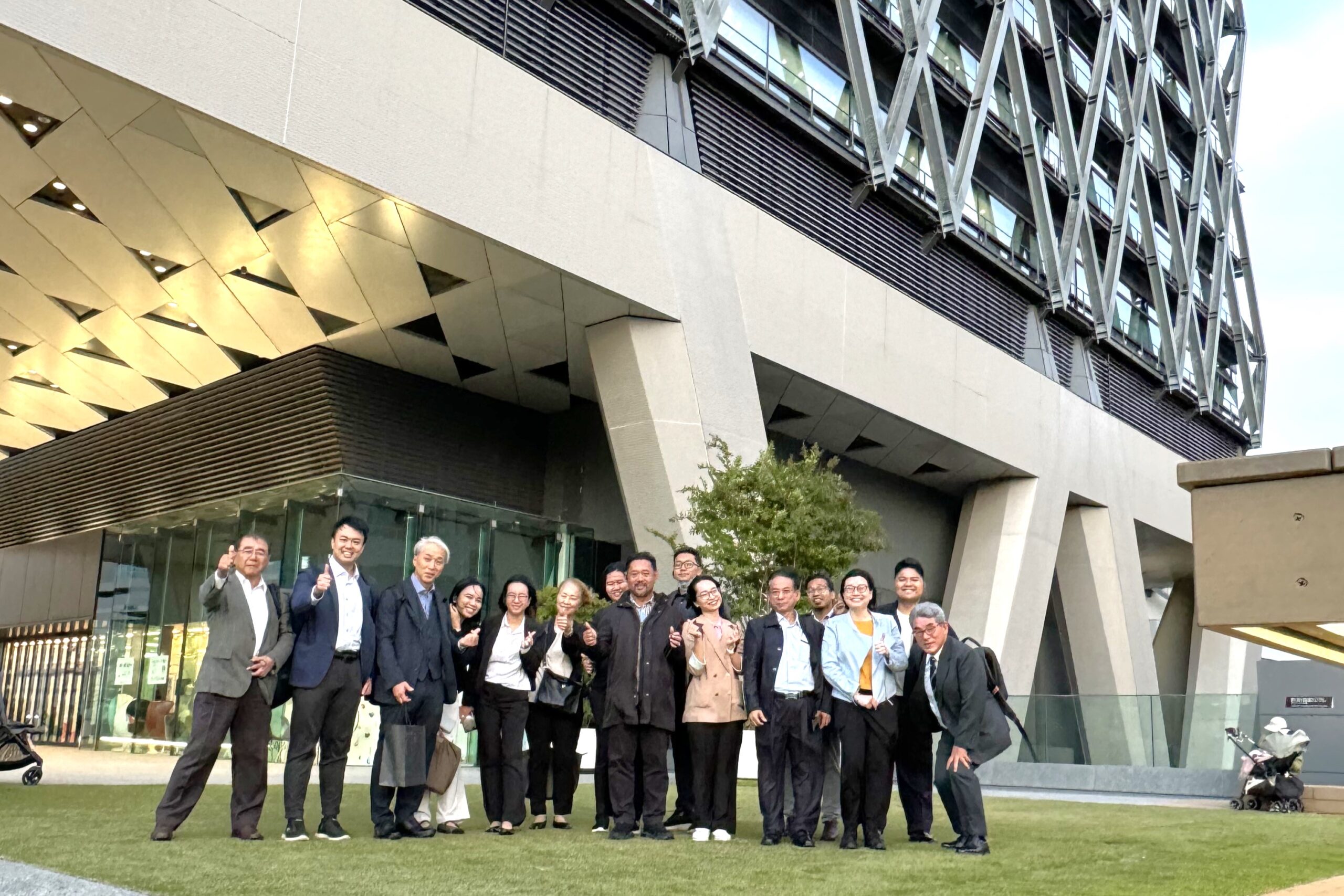Menu

Photo 1. Participants of ECAP33 on Building
The ASEAN Centre for Energy (ACE), in collaboration with the Energy Conservation Center Japan (ECCJ), co-organised the 33rd Energy Conservation Workshop under ASEAN-Japan Energy Efficiency Partnership (ECAP33) from 28 October 2024 to 1 November 2024 in Tokyo, Japan. The Workshop was attended by representatives from ACE, ECCJ, and eight ASEAN Member States (AMS) – Cambodia, Indonesia, Lao PDR, Malaysia, the Philippines, Singapore, Thailand, and Viet Nam.
ECAP33 is a capacity building workshop to develop Zero Energy Building (ZEB) policies, disseminate the latest technologies and information, and address the challenges and measures for establishing EE standards in buildings towards Carbon Neutrality. This includes introduction of a Japanese tool (WEBPRO) for evaluating compliance with energy conservation design standards for non-residential buildings to ASEAN, ZEB Family Concept, and ASEAN Energy Efficiency and Conservation (EE&C) Best Practices Awards.

Photo 2. ECAP33 Lecture Session
On the first day, Dr Zulfikar Yurnaidi, Acting Head of Energy Efficiency and Conservation (CEE) Department at ACE, delivered the latest policy and legal framework in the building sector in ASEAN. The session continued with a lecture by the Ministry of Land, Infrastructure, Transportation and Tourism (MLIT) Japan, focusing on the internationalisation of Japanese EE&C building standard, specifically with design assessment tool, WEBPRO. The day concluded with AMS country reports, where representatives shared updates and challenges related to ZEB and the Building Energy Code (BEC).
The workshop’s second day began with an assessment of the EE&C design standards for non-residential buildings in Japan. This was followed by the first group discussions focused on enhancing EE&C building standards and exploring the potential use of WEBPRO. Key challenges identified during the discussions included cost, financial structures, infrastructure, regulatory issues, and pricing. They highlighted the need for reliable data gathering, the development of Energy Manager and ZEB Professional tracks, and standard materials for guidelines and promotion. Later in the day, two lectures by Japanese Business Alliance for Smart Energy Worldwide (JASE-W) explored ZEB dissemination efforts in ASEAN and advanced technologies to achieve ZEB objectives.

Photo 3. ECAP33 Site Visits
On the third day, participants had the opportunity to engage in two site visits that provided practical insights into Japan’s approach to energy efficiency and conservation in the building sector. The first site visit took place at the Shibuya Metro Building, where Tokyu Renewal Co., Ltd. has set up the ZEB Ready Proposal Live Office on the 2nd floor of the Shibuya Subway Building. It implements ZEBoT, which utilises the block method combined with a visualisation system. The ZEB Ready Live Office features energy-efficient designs, including insulated glass, sensor dimming LEDs, thermal-insulating walls, and reservable desks to reduce lighting and optimise space.
The second site visit took place at DaiyaGate Ikebukuro, a building exemplifying Tokyo’s innovative response to seismic risks—estimated to be over 70% for a magnitude 7 earthquake within the next 30 years, as highlighted by the 2011 East Japan earthquake. This unique structure spans railway tracks and employs a holistic design approach, incorporating a hybrid air conditioning system, Through-Wall Units (TWU), and a heat storage water tank to enhance resilience, energy efficiency, and indoor environmental quality.

Photo 4. ECAP33 Participant Group Discussion
As the workshop progressed into its fourth day, Dr Zulfikar Yurnaidi, Acting Head of CEE Department at presented the plan to develop the new ZEB sub-category in the ASEAN Energy Award, including the proposed criteria and methods for the ZEB sub-category. Following this, ECCJ presented the application procedure and evaluation criteria in ZEB and the outline of AJEEP Scheme 5. The second group discussions then focused on the proposed ZEB sub-category for the ASEAN Energy Awards centred around establishing comprehensive criteria and evaluation methods.

Photo 5. Dr Zulfikar Yurnaidi, Head of ACE Delivered the Lectures
Moving forward, on the last day, AMS participants presented their final reports on how to effectively apply insights from the workshop lectures, site visits, and discussions to advance EE&C in buildings within their regions. Key lessons learned included the significance of a robust regulatory framework and government support, the utility of building assessment tools like WEBPRO, adopting energy-efficient technologies, successful cases of ZEB implementation, sustainable design practices, and the importance of building standards and labeling.
About Project:
ASEAN-Japan Energy Efficiency Partnership (AJEEP), as part of the ASEAN Senior Officials Meeting on Energy and Japan’s Ministry of Economy, Trade, and Industry (SOME-METI) Work Programme for 2024-2025, is a regional cooperation initiative between ASEAN and Japan, implemented by the ACE and ECCJ with financial support from Japan’s Ministry of Economy, Trade, and Industry (METI). This partnership aims to strengthen the capacity of AMS and reduce disparities in Energy Efficiency and Conservation (EE&C) policies and practices. ECAP itself began in 2012 as a capacity-building initiative for EE&C in AMS.
